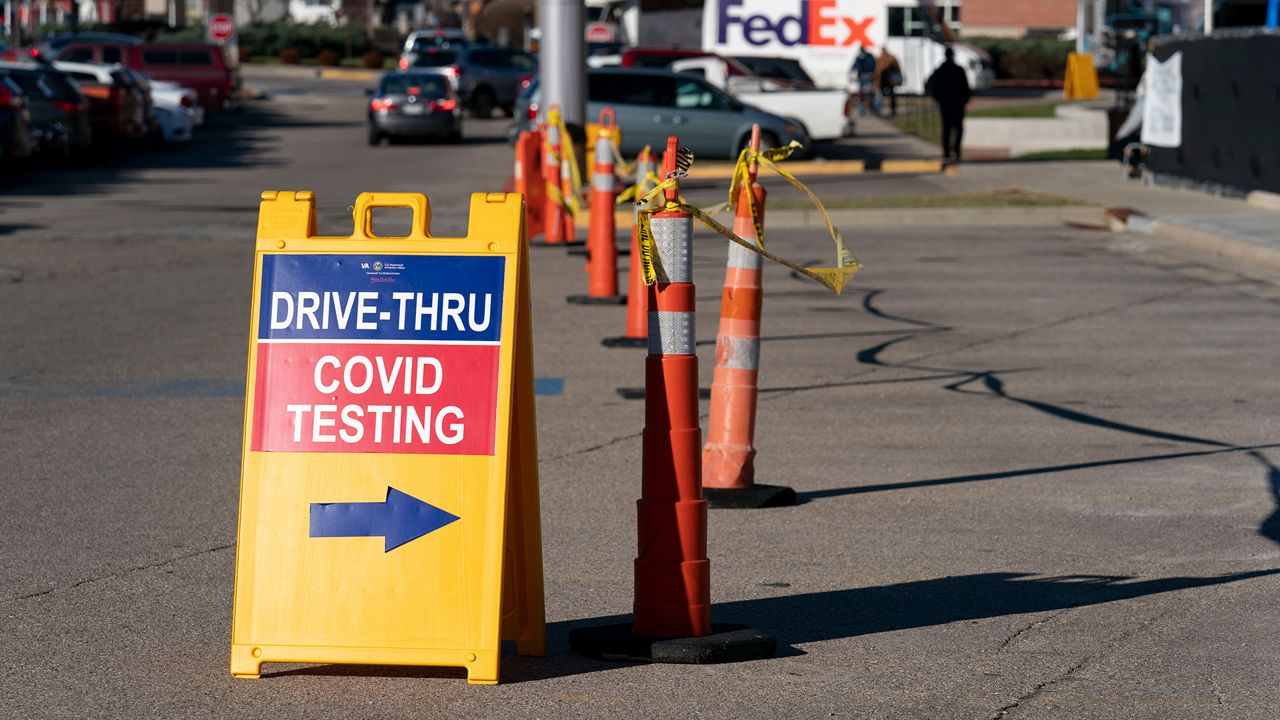COLUMBUS, Ohio — Ohio officials said they are working to make COVID-19 tests more available amid the omicron surge, while vaccination remains the state’s top priority in the fight against COVID-19.
What You Need To Know
- COVID-19 tests are in high demand across Ohio due to high cases, officials said
- The state is expecting to to receive 1.2 million rapid at-home tests in January
- Appointments for COVID-19 vaccinations are widely available at many locations
“Demand for testing is as high as it has been throughout the pandemic,” Ohio Department of Health spokesperson Megan Smith said. “We continue to purchase tests and work to make testing as available and accessible as possible to Ohioans. That said, we know what the mitigation steps are to protect ourselves from the virus. The best thing that Ohioans can do is choose to be vaccinated, followed by a booster.”
The state gave out about 5.2 million free at-home rapid tests last year, distributing 1.4 million of the tests in the month of December. Ohio exhausted much of its supply of the kits around the Christmas holiday because officials said they made the decision to distribute nearly all of the tests that were on hand.
Ohio has ordered 1.2 million proctored rapid at-home testing kits for the month of January, 400,000 of which have been received and are being distributed, Smith said.
While the health department works to make at-home tests more available, 300 members of the Ohio National Guard are helping expand testing operations in nine Ohio cities, working in partnership with hospitals.
Pharmacies continue to offer COVID-19 testing options, and they are also still playing a major role in the administration of vaccines, including booster shots, which are widely available across Ohio.
Here’s the latest on testing and vaccination in Ohio.
Where is the Ohio National Guard supporting COVID-19 testing?
The Ohio National Guard is supporting large testing operations at the W.O. Walker Building in Cleveland with University Hospitals and the Cleveland Clinic, the American Chemical Society in Columbus with Ohio State Wexner Medical Center and the Atrium testing site in Akron with Summa Health.
The Ohio National Guard is also being deployed to testing sites in Canton, Zanesville, Mansfield, Chillicothe, Toledo, Springfield and Cincinnati. In Dayton, capacity will be expanded at existing testing locations.
“The locations, which are intended to divert testing traffic from hospital emergency rooms, come as the state is experiencing the highest number of COVID-19 hospitalizations during the pandemic,” Gov. Mike DeWine's office said in a release.
Where can you get an at-home rapid test?
Ohio distributes at-home rapid tests to libraries, health departments, schools and community health centers, which provide them to the public at no cost. The DeWine administration said providers will be resupplied in January.
At-home rapid tests can also be purchased at pharmacies and ordered online, but many sellers are sold out.
Kroger and Walmart recently raised the price of their at-home tests. The retailers had agreed with the White House to provide the tests at cost for a three-month period that ended in December.
Where else are tests available?
Pharmacies and health systems throughout the state are offering COVID-19 tests, both rapid tests and PCR tests, which are usually processed within a few days.
Residents can make appointments for COVID-19 tests at CVS, Kroger, RiteAid and Walgreens. Some pediatricians' offices and primary care providers are offering tests to their patients.
The Ohio Department of Health maintains a list of testing providers, which allows residents to search by county. It includes pharmacies, health centers and urgent cares, among other providers.
In Ohio’s major cities here are additional providers offering tests:
- Columbus: OhioHealth, Equitas Health, Nationwide Children’s Hospital
- Cincinnati: Gravity Labs, Cincinnati Children’s Hospital, Healthcare Connection
Which pharmacies are offering vaccines?
Retail pharmacies and grocery chains are offering free vaccinations to Ohio residents for the primary series and boosters, including CVS, Kroger, Walmart, Walgreens, RiteAid, Marc’s and Giant Eagle. Many independent pharmacies are also administering COVID-19 vaccines.
The CDC said adults who have received Pfizer's mRNA vaccine should get a booster dose five months after their second shot. Moderna recipients are eligible for a booster six months after their second shot and Johnson & Johnson recipients can get a booster at least two months after they receive the vaccine.
Some pharmacy providers accept walk-ins for COVID-19 vaccination, while others are requiring appointments.
Where else are vaccine appointments available?
Vaccines are available at health centers, doctors' offices, hospitals and health departments, among other locations. The state’s vaccine scheduling website can be used to find a provider and schedule an appointment.
Some of the options include:
- Columbus: Columbus Public Health, Franklin County Public Health, Ohio State Wexner, Mount Carmel Health, OhioHealth
- Cleveland: Cleveland Department of Public Health, Cuyahoga County Board of Health, MetroHealth, Cleveland Clinic, University Hospitals
- Cincinnati: The Health Collaborative in Cincinnati maintains an online list of vaccine providers in the region. Hospitals including UC Health, the Christ Hospital, TriHealth and Cincinnati Children’s are also offering vaccination.



